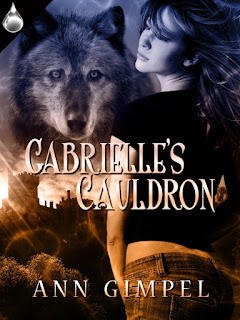Why I Don’t Want to Grow Up—Not Ever
This is a guest blog post I created for Heroines With Hearts back in October of last year. Thought I'd give it a bit more airtime!
So, what does all this have to do with writing? Authors, really good ones, are able to transport you to another world. It doesn’t have to be a far-fetched science fiction or fantasy world like the ones I frequently write about, but it does have to have enough in the way of world-building to anchor you in the writer’s imaginal process. Reading is an escape and if the world inside the book isn’t sufficiently enticing, you’ll put it down and move on to something that captivates you.
As a sidebar, I’d like to say a couple of things about the imaginal world. Like, for example, what it is. On its simplest level, it’s where we go in our imaginations. For many artists though, this place can turn into a multi-faceted experience. Once they asked Nijinsky what was in his head as he danced. His response was, “I am sitting in the front row watching myself.”
What I think he meant by that was he was able to split his conscious mind into two parts: the part keeping his agile body balanced through the amazing, gravity-defying twirls and jumps he did on stage, and a more cognitive part choreographing his next moves. Because what he did had a physical element, the marriage of his physical and intellectual selves was his link to the imaginal world and the basis for his genius.
How does the imaginal world pan out for writers since it’s a far less physically demanding artistic pursuit? I can only speak for myself, but when I’m deep into a story, my head is so full it’s difficult to stop writing to come down to start dinner. And when I do, God help the poor, hapless family member who actually tries to talk to me because I’m not living in twenty-first century America at that moment. Nope, I’m running alongside my characters as they sketch out their next moves in a sort of parallel universe. Terry Brooks once said something like, “In this business, if you tell your muse to go away, you never know when you’ll see her again. Or if.”
I’ve been writing long enough now I trust the muse will return. It’s simply a matter of when. Problem is, if I skitter out of the imaginal world back to the other one, I get grumpy because it’s not where I want to be. I suppose I’m happiest when the story just keeps on unfolding and I find myself letting pretty much everything else go to hell as I spend hours and days at the keyboard before coming up for air. I’ve always been grateful for my tolerant family. They’re my first beta readers, my biggest critics and my greatest advocates. Long hours on the trail in the backcountry help too. I’ve written lots of short stories in my head on those journeys and gotten the underpinnings for novels as well. Solitude stokes my imagination. Doesn’t take much to bring me back to being a five or six year old kid wondering if tonight is the night the monster will spin out of the closet.
Which circles back to the title of this blog post. Children are born with wonderful imaginations that we set about drumming out of them practically from the time they can talk. There’s nothing wrong with something hiding in the closet, or a magical staircase rising up just there next to the window.
We live in an age that is antithetical to mystery, and because we want everything explained to within an inch of its life; it is also an age that is antithetical to imagination. Without imagination, it becomes progressively harder to lose oneself in books or anything else. I think the fix is to read more, especially to children. Teach them to love books. Let them regale you with fantastic tales about dragons and wizards. Read them The Lord of the Rings and Harry Potter. Pull out the Narnia Chronicles. There’s something irresistible about a magic door in the back of a wardrobe leading to a whole other world. I just finished Lev Grossman’s Magician Kings and it has a definite C.S. Lewis feel about it. Probably why it was a best seller. They don’t access Fillory from a wardrobe, but one of the many routes into that magical land is through a grandfather clock.
This is getting too long, so I’ll wrap up. Find the Alice in Wonderland door in your own mind. Revel in the unexplained. Grab onto a dream and make it real for yourself. Take a couple of really deep breaths and tell your best friend how much you love them. Read to your kids and grandkids. And never lose your sense of wonder.
Do you remember back to when you were really young? When the boogeyman lived under the bed, or in the back of the closet? And your mom told you he’d get you if you didn’t finish your peas. There was that little frisson of fear that would scuttle down your spine. Part of you knew things like boogeymen didn’t really exist—or did they? The possibility that they might added an edgy, exciting dimension to things.
I sometimes wonder if the box age (you know, the one that started with television and ended with computers and smartphones) hasn’t shifted that sense of wonder we who grew up in the fifties and sixties used to have. There were mysteries when I was a kid and no internet to race to in a hunt for answers. So, some mysteries remained just that. And that was fine. It was all right that some things had no answers; that you just sort of took it on faith that there were at least a few things that couldn’t be dissected into their component parts.So, what does all this have to do with writing? Authors, really good ones, are able to transport you to another world. It doesn’t have to be a far-fetched science fiction or fantasy world like the ones I frequently write about, but it does have to have enough in the way of world-building to anchor you in the writer’s imaginal process. Reading is an escape and if the world inside the book isn’t sufficiently enticing, you’ll put it down and move on to something that captivates you.
As a sidebar, I’d like to say a couple of things about the imaginal world. Like, for example, what it is. On its simplest level, it’s where we go in our imaginations. For many artists though, this place can turn into a multi-faceted experience. Once they asked Nijinsky what was in his head as he danced. His response was, “I am sitting in the front row watching myself.”
What I think he meant by that was he was able to split his conscious mind into two parts: the part keeping his agile body balanced through the amazing, gravity-defying twirls and jumps he did on stage, and a more cognitive part choreographing his next moves. Because what he did had a physical element, the marriage of his physical and intellectual selves was his link to the imaginal world and the basis for his genius.
How does the imaginal world pan out for writers since it’s a far less physically demanding artistic pursuit? I can only speak for myself, but when I’m deep into a story, my head is so full it’s difficult to stop writing to come down to start dinner. And when I do, God help the poor, hapless family member who actually tries to talk to me because I’m not living in twenty-first century America at that moment. Nope, I’m running alongside my characters as they sketch out their next moves in a sort of parallel universe. Terry Brooks once said something like, “In this business, if you tell your muse to go away, you never know when you’ll see her again. Or if.”
I’ve been writing long enough now I trust the muse will return. It’s simply a matter of when. Problem is, if I skitter out of the imaginal world back to the other one, I get grumpy because it’s not where I want to be. I suppose I’m happiest when the story just keeps on unfolding and I find myself letting pretty much everything else go to hell as I spend hours and days at the keyboard before coming up for air. I’ve always been grateful for my tolerant family. They’re my first beta readers, my biggest critics and my greatest advocates. Long hours on the trail in the backcountry help too. I’ve written lots of short stories in my head on those journeys and gotten the underpinnings for novels as well. Solitude stokes my imagination. Doesn’t take much to bring me back to being a five or six year old kid wondering if tonight is the night the monster will spin out of the closet.
Which circles back to the title of this blog post. Children are born with wonderful imaginations that we set about drumming out of them practically from the time they can talk. There’s nothing wrong with something hiding in the closet, or a magical staircase rising up just there next to the window.
We live in an age that is antithetical to mystery, and because we want everything explained to within an inch of its life; it is also an age that is antithetical to imagination. Without imagination, it becomes progressively harder to lose oneself in books or anything else. I think the fix is to read more, especially to children. Teach them to love books. Let them regale you with fantastic tales about dragons and wizards. Read them The Lord of the Rings and Harry Potter. Pull out the Narnia Chronicles. There’s something irresistible about a magic door in the back of a wardrobe leading to a whole other world. I just finished Lev Grossman’s Magician Kings and it has a definite C.S. Lewis feel about it. Probably why it was a best seller. They don’t access Fillory from a wardrobe, but one of the many routes into that magical land is through a grandfather clock.
This is getting too long, so I’ll wrap up. Find the Alice in Wonderland door in your own mind. Revel in the unexplained. Grab onto a dream and make it real for yourself. Take a couple of really deep breaths and tell your best friend how much you love them. Read to your kids and grandkids. And never lose your sense of wonder.


Comments
Post a Comment